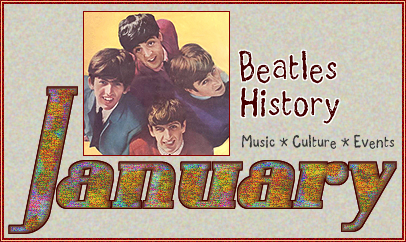 History offers History offers
a chance
to truly
understand
how the past
impacts the now.
Follow our
daily timelime
of historical
events to
discover the
role The Beatles
played in changing
the modern world.
THE FOLLOWING EVENTS TOOK PLACE ON JANUARY 1
0001--Origin of the Christian Era.
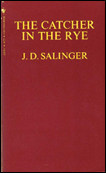 1735--Paul Revere, silversmith and US patriot, is born. 1735--Paul Revere, silversmith and US patriot, is born.
1785--Daily Universal Register (Times of London) publishes its first issue.
1801--The Act of Union between Great Britain and Ireland takes effect, creating the United Kingdom.
1863--The Emancipation Proclamation is issued by Abraham Lincoln, ending slavery in America.
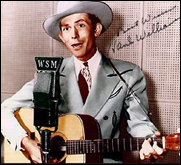
1919--J.D. Salinger, author of "Catcher in the Rye," is born in New York City.
1933--Joe Orton, actor-dramatist, is born.
1953--Hank Williams, “father of country music,” dies dies in the back seat of a Cadillac en route to a concert in West Virginia. He was 29.
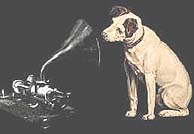 1955--RCA Victor announces "Operation TNT," an attempt to spur record sales. RCA drops the list price on LPs from $5.95 to $3.98, EPs from $4.95 to $2.98, 45 EPs from $1.58 to $1.49, and 45s from $1.16 to 89¢. Other labels start doing the same thing. 1955--RCA Victor announces "Operation TNT," an attempt to spur record sales. RCA drops the list price on LPs from $5.95 to $3.98, EPs from $4.95 to $2.98, 45 EPs from $1.58 to $1.49, and 45s from $1.16 to 89¢. Other labels start doing the same thing.
1958--The European Economic Community (EEC), the "Common Market," comes into being.
1958--BOAC Britannia flies London to New York in a record 7 hours, 57 minutes.
1959--The Quarry Men (John Lennon, Paul McCartney, George Harrison, and Colin Hanton) perform at Wilson Hall, Garston, Liverpool. The occasion is the (late) Christmas party of the Speke Bus Depot Social Club. Harry Harrison (George's father) is chairman of the club and had arranged the booking for The Quarry Men. The performance turns into a drunken, messy affair, and afterwards drummer Colin Hanton gets into a furious argument with the others. On the way home by bus, Hanton gets off with his drums before his usual stop. He neither saw nor heard from The Quarry Men again.
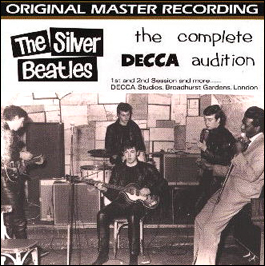
1962--On New Year's Day (not a holiday in England at that time), The Beatles (John Lennon, Paul McCartney, George Harrison, and Pete Best) conduct their first audition for a major record company, Decca. In Decca's studios in London, and less than two miles from EMI's Abbey Road studios, The Beatles tape 15 songs that had been carefully selected by Brian Epstein to show off their versatility: Like Dreamers Do, Money, Till There Was You, The Sheik of Araby, To Know Her Is to Love Her, Take Good Care of My Baby, Memphis, Sure to Fall (In Love With You), Hello Little Girl, Three Cool Cats, Crying, Waiting, Hoping, The Love of the Loved, September In the Rain, Besame Mucho, and Searchin'. It took about an hour to record all the songs, and Decca's Mike Smith (who had arrived late, irritating Brian Epstein) promised to get back to Brian with Decca's decision; then Smith hurried The Beatles out of the studio because he was running late for a second audition with Brian Poole and the Tremeloes. Decca signs the Tremeloes, not The Beatles.
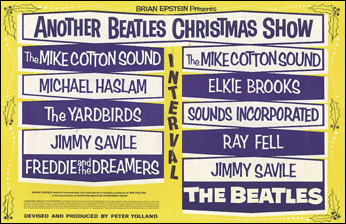 1964--The Beatles perform at the Astoria Cinema, Finsbury Park, London. Appearing in two performances of "The Beatles' Christmas Show." 1964--The Beatles perform at the Astoria Cinema, Finsbury Park, London. Appearing in two performances of "The Beatles' Christmas Show."
1964--The BBC broadcasts the first "Top of the Pops" TV show. The show features the top pop acts of the day.
1965--The Beatles put on two performances of "Another Beatles Christmas Show" at the Hammersmith Odeon in London.
1966--All US cigarette packs must now carry the warning "Caution: Cigarette smoking may be hazardous to your health."
1971--Cigarette advertisements are banned on American television.
1976--At the Dakota, Elliot Mintz, who continues in close contact with the Lennons, interviews John, while baby Sean gurgles contentedly in the background. (It is a 60-minute Earth Day Interview.) John also records a demo tape featuring a performance of As Time Goes By. Later in the day, Bob Gruen is invited to the apartment to take more pictures of the family, one which is the photo that will later appear on John's "green card."
1980--Singer Cliff Richard becomes only the third British rock act to receive an MBE from the Queen of England. The other two are The Beatles and Elton John.
1984--Following delays of over a year, Granada TV in England finally broadcasts the program "The Early Beatles: 1962-1965." The 45-minute documentary, which came about because producer Johnny Hemp wanted to transfer the best of Granada's archives to videotape to keep them from disintegrating, comprises rare Beatles interviews, TV appearances, and newsreel shots.
1984--Alexis Korner, whose band Blues Incorporated gave many English musicians their start in the business, dies in London at age 55. Among Blues Incorporated's alumni are Mick Jagger, Keith Richards, Charlie Watts, Jack Bruce, Steve Marriott, and Manfred Mann.
1985--VH1 debuts on cable television.
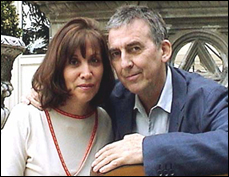 1990--It's "Greening of the World" (GOW) year, according to Yoko Ono, who announces 12 months of environmental campaigns and events to mark what would have been John Lennon's 50th year. 1990--It's "Greening of the World" (GOW) year, according to Yoko Ono, who announces 12 months of environmental campaigns and events to mark what would have been John Lennon's 50th year.
 1999--The euro is introduced, giving 11 European countries a shared currency for the first time since the Roman Empire. 1999--The euro is introduced, giving 11 European countries a shared currency for the first time since the Roman Empire.
2000--George Harrison leaves the hospital following a knife attack at his English mansion by a crazed fan. Doctors tell him that he will be able to play the guitar again, despite suffering a hand wound during the attack.
2000--People the world over change their calendars to the year 2000 with very few of the ‘Y2K’ computer-glitche nightmares that had been predicted.
For more day-by-day history go to HistoryUnlimited.net
|
 History offers
History offers


